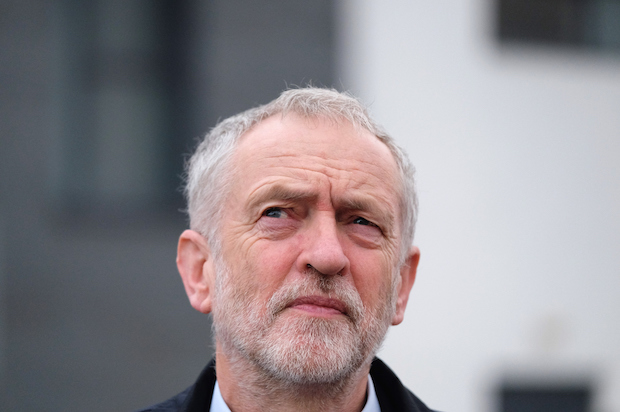Theresa May did a good job in uniting the House of Commons today, but someone who did an even better job in bringing together MPs to praise the Prime Minister was Jeremy Corbyn. The Labour leader’s partisan response to May’s statement on the poisoning of Sergei Skripal so antagonised Conservative MPs and so disappointed many on his own side that much of the session was about the failings of the Opposition, rather than the questions for the Government.
He criticised Tom Tugendhat’s earlier comments about Russian aggression, telling MPs that ‘we need to continue seeking a robust dialogue with Russia on all the issues – both domestic and international – currently dividing our countries, rather than simply cutting off contact and letting the tensions and divisions get worse and, potentially, even more dangerous’. This drew a furious response from Tugendhat, who accused Corbyn of staying silent on Russia’s backing for Bashar al-Assad in Syria. Other MPs including former Tory leader Iain Duncan Smith explicitly criticised Corbyn for failing to rise to the occasion and scoring party political points.
But what was more interesting was the rush of Labour MPs to either praise the Prime Minister for her handling of this attack, or to call for a boycott of Russia Today, which Corbyn has both appeared on and praised.
Corbyn’s foreign policy is less well-scrutinised than it should be, partly because it is now quite easy for Labour to claim that every valid question is a smear along the lines of the Czech spy claims. But today we had a reminder of quite how different Britain would be on the international stage if he were Prime Minister. His frontbenchers cheered him as he spoke, but backbench MPs were rather less enthusiastic. This isn’t a fleeting reminder of how sympathetic to Russia and suspicious of Britain’s traditional allies Corbyn is: Theresa May will return to the House on Wednesday to update MPs on Russia’s response to her accusation that the poisoning was either a ‘direct act’ by the Russian state or a loss of control by the Russian government of its stock of a nerve agent. He’s unlikely to change his tune in the next day and a half before that statement, and he’s unlikely to care that he managed to upset far more than just the usual suspects on the Labour benches today. But Corbyn is making it much clearer that objections to his potential premiership extend far beyond a dislike of women-only train carriages.
It’s worth knowing what the Leader of the Opposition might want to do if he were in fact the Prime Minister responding to an attack on British soil. But it’s even more important to know every detail of the government’s stance. MPs did a good job in asking that following today’s statement, but of course in their rush to condemn the Labour leader, they were a little more distracted than they should have been. And this is why Corbyn’s approach to foreign affairs matters right now, not just as a hypothetical.
On 18 April, join Andrew Neil and a special guest panel for an in-depth discussion about Russia’s people, politics, economy and how the West should deal with the newly re-elected Vladimir Putin. Book tickets here







Comments